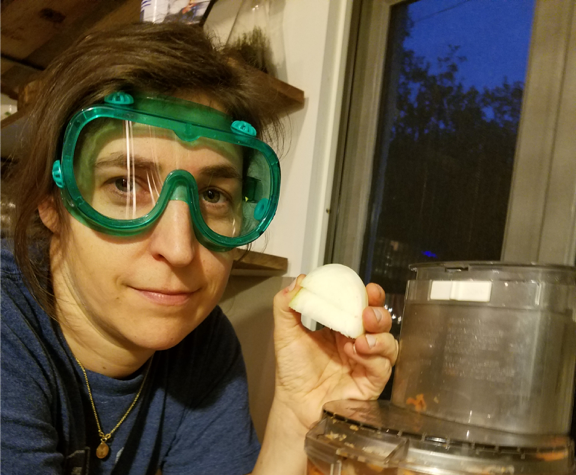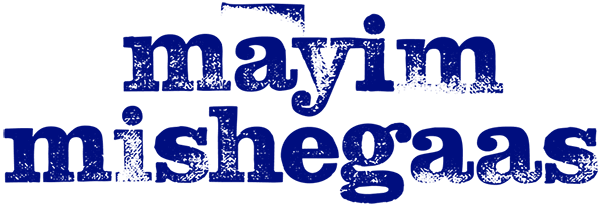
It’s December. I’ve known it was almost December for about a month now, since one of my favorite radio stations here in Los Angeles stopped playing “greatest hits of the 80s 90s and today” and started playing all Christmas music all the time.
And no, this is not going to be a post about how I hate Christmas music. I know that my post about religious Christian music playing in a craft store upset many of you several months ago, but this is not about that, I promise!
I used to write for Kveller.com and pretty much every single year, I wrote about feeling like Scrooge. I do not begrudge people Christmas or the enjoyment that many get from what for many people is indeed the most wonderful time of the year. But as a Jewish person who was raised in a traditional Jewish home, I never celebrated Christmas and never felt the need to celebrate Christmas.
I married into a family that did celebrate Christmas and I always enjoyed taking part in a festive meal and watching my kids open gifts from their paternal grandparents, even though I never quite knew if I was “doing it right.” (My ex-husband’s mother converted to Judaism before my second son was born, but his father and his father’s wife celebrate Christmas.) However, in all of the years that I admired my in-laws’ Christmas tree or their Christmas lights or all of the pretty decorations they put up around their house, I never felt like we were missing out. And my children love going to their grandparents for Christmas day and watching football, and eating, and opening some presents, but they have never been confused about why we don’t celebrate Christmas. It’s really not a big deal that we don’t celebrate Christmas, and they appreciate that their grandparents do.
Here are the questions I am most commonly asked during the holiday season and my answers:
Q: Have you started your Christmas shopping yet?
A: I do not have any Christmas shopping to do. I am Jewish.
Q: Have you started your Chanukah shopping yet? Jewish people can celebrate Christmas.
Answer Part One: I do not have any Chanukah shopping to do.
Answer Part Two: While many Jews celebrate Christmas as “an American holiday,” I don’t see it as an American holiday. There are many holidays such as July 4 or even Thanksgiving that I associate as American holidays. Martin Luther King Jr. Day is an American holiday, as is Presidents’ Day. I can enjoy the winter holiday season without having a Christmas tree or giving gifts. I enjoy making food with all of the winter produce that is available in Southern California and I like looking at twinkly Christmas lights on all of the houses that I see decorated. I enjoy attending my neighbors’ Christmas party. I was raised to understand that Christmas celebrates the birth of Christ and almost all of the people I knew who celebrated Christmas did so whether or not they considered themselves religious. So to me, I just considered Christmas a holiday for Christians.
Q: Why don’t you buy gifts? That makes you sound like you’re not very much fun….
A: The house that I grew up in and the way that I grew up celebrating Chanukah did not entail any notion of gift-giving which would require any formalized shopping. I buy a simple present for my mom and for my ex-husband, and my ex and I decide on one toy that we give our boys. If they need socks or underwear or pajamas, this would be the time of year that we would buy those for them. With all of the abundance of ‘things’ in our lives, I tend to not like to contribute to advertisers’ attempts to make us consume so much (see my interview with Cecile Andrews, the founder of The Simplicity Circle, for why this matters and how it can impact our lives in significant ways). With so many lacking so much in this world, I don’t feel good spending lots of money buying gifts when I could – and do –make donations to causes that are helping those in need at this time of year and throughout the year. I typically donate at this time of year to homeless organizations, especially those who serve families who are homeless. I also donate toys to toy drives and make annual contributions to educational organizations and those serving the underprivileged.
Q: Why can’t Chanukah be a big deal like Christmas is?
A: Well, Chanukah is actually not a major holiday on the Jewish calendar. Our major holidays are Passover, Sukkot, Shavuot, Rosh Hashanah, and Yom Kippur. On those holidays, we restrict our work activities and there are ritual meals and synagogue attendance that is required of us. Chanukah, while fun and joyous, is not a holiday that is spoken about in the Torah (Old Testament) and while there are rituals associated with the holiday, its observance is not even as significant in terms of preparation or participation as Shabbat which happens every single week all year long.
Q: So what do you actually do on Chanukah? Do you sit around and lament how awful the world is? You don’t sound like a good time.
A: Every night of Chanukah, we light a candle on a chanukiah, which is the name for an 8 branched menorah (menorah means candelabra in Hebrew). There is a special blessing we say when we light the candles and there are a lot of traditional songs that we sing. In my family, we sing in Yiddish which is the language of Eastern European Jews, but we also sing songs in Hebrew and we even have a really cool CD that we listen to throughout the month of December which features songs in Ladino, which is the language of Spanish Jews. (Here is a link to that groovy CD which features rap and reggae as well as more traditional melodies done with modern flair).
We learn the story of a great battle between the Maccabees (led by a brave man named Judah) as they resisted forced assimilation by the Greeks a few thousand years ago (the story of Chanukah occurred in the year 3622/139 B.C.E., and was first recorded in the Talmud, a work codified some 600 years after the events of the Chanukah story.) We discuss themes of the few overpowering the many, and how important it is to be confident in your faith and be willing to fight for your right to exist and be free. (For families opposed to the Cabinet appointments by President-elect Donald Trump, this story will take on great significance in particular this year.)
One of my favorite parts of the holiday is eating anything that is fried in oil, which recalls the miraculous oil that kept the holy Menorah in the Great Temple of Jerusalem burning after the Greeks defiled the Temple and the Jews fought to reclaim it. Latkes are most commonly known as potato pancakes, but they’re basically potato and onion bound together and deep-fried. Yum. In my family, we shred the potatoes and they taste like fancy hashbrowns. (Check out my recipe HERE!) You can eat latkes with ketchup but many people think that is sacrilegious; those people eat them with sour cream and applesauce which is also a great option. Another traditional food that we eat fried in oil are sufganiyot (doughnuts) which sometimes are filled with jelly but sometimes they are just sprinkled with powdered sugar. In Israel, the bakeries make doughnuts for Chanukah filled with all sorts of chocolate goodness and a sort of dulce de leche filling as well.
And yes, in my family, we actually play dreidel (a four-sided spinning top), using pennies or almonds (or any other nut or small object that’s easy to count) to bet against each other. Dreidel is a game of chance but that doesn’t mean it is not enjoyable for all. We have a fun collection of dreidels in my house and each year we try to add to the collection.
Q: Why don’t you celebrate Christmas? I still don’t get it.
A: Sigh. I’ll try again next year to explain it better.
I would like to reiterate again how much respect I have for Christians and Christianity and for all of the people who celebrate Christmas, whether they are Christian or not.
For those of you who are shopping for Christmas, good luck! And to all of you who incorporate giving to the poor and the needy at this time of year, thank you for spreading holiday cheer in that way!




 Read More From Mayim
Read More From Mayim
Grok Nation Comment Policy
We welcome thoughtful, grokky comments—keep your negativity and spam to yourself. Please read our Comment Policy before commenting.